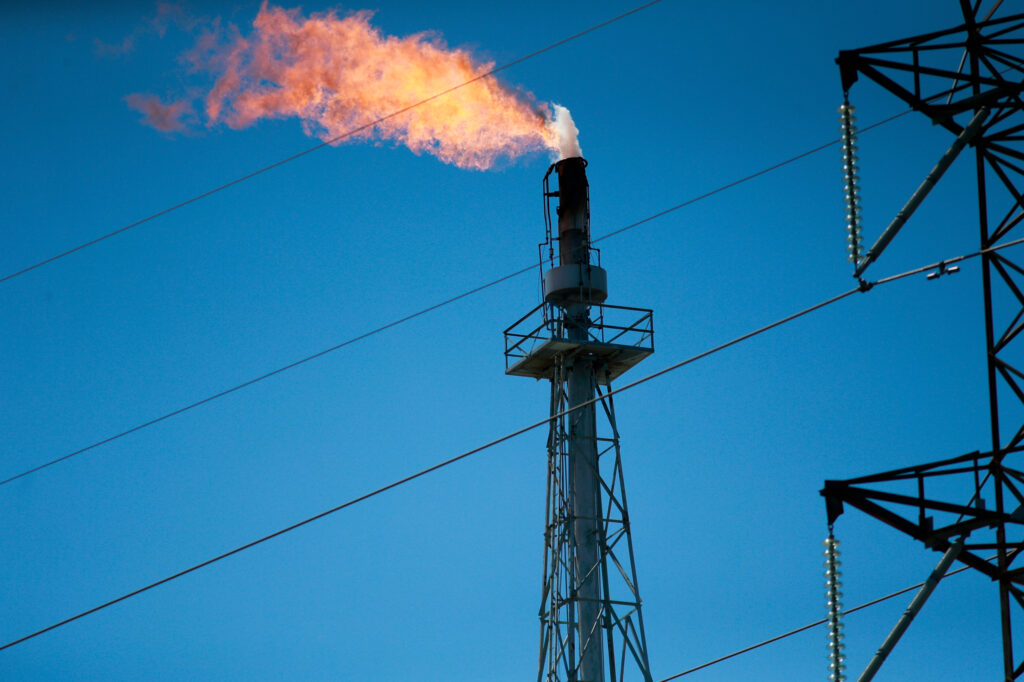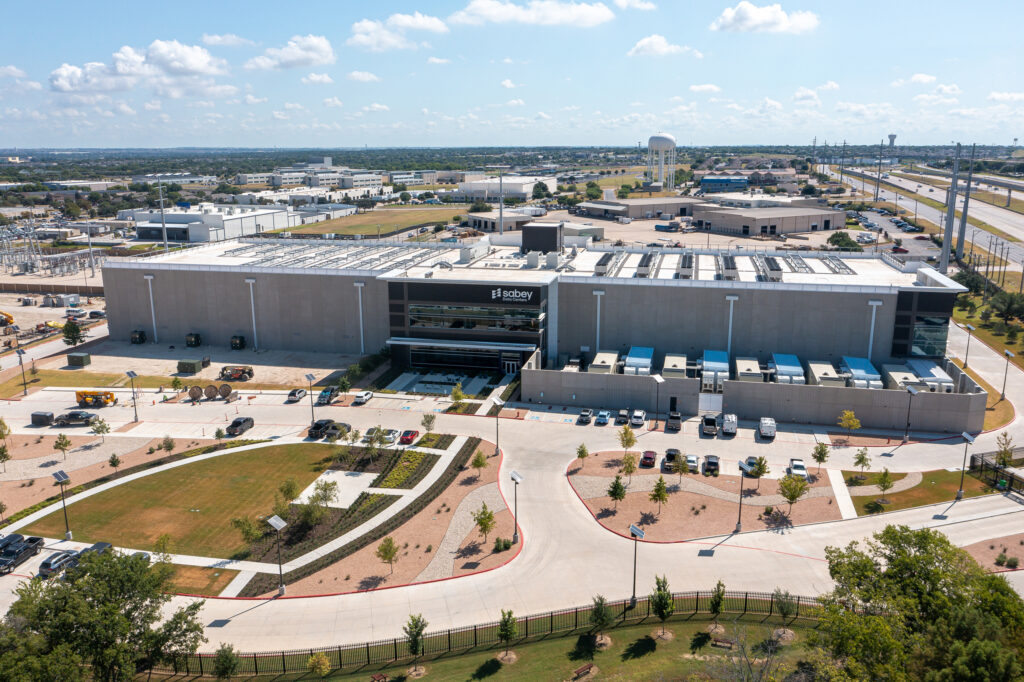Texas’ independent electric grid has transformed in recent years with the significant addition of wind, solar and battery storage facilities, and faces new risks as large load users like data centers request to be connected.
These changes, plus increasing threats from extreme weather events and security issues, are among those risks for the reliability of Texas’ grid’s, according to a new report from Texas Reliability Entity, Inc., (Texas RE), one of the six regional entities under North American Electric Reliability Corporation (NERC), a nonprofit international regulatory authority.
Leaders of Texas RE presented the findings of their 2024 reliability performance report to the Public Utility Commission of Texas on Thursday. The assessment compiles data from a variety of sources, including ERCOT data, generation and transmission availability data and demand response availability data.
It’s the most important report the group produces, said Jim Albright, Texas RE president and CEO. The report found that one of the largest risks facing the state’s grid operator, the Electric Reliability Council of Texas (ERCOT), is the disorganized integration of large loads—primarily from artificial intelligence services and increased demand from the oil and gas industry.
We’re hiring!
Please take a look at the new openings in our newsroom.
See jobs
Public Utility Commission of Texas Chairman Thomas Gleeson asked the report authors how well the region is positioned to take on these challenges.
While Texas is well-positioned to handle these risks, said David Penney, the director of reliability services at Texas RE, it’s contingent on the ability of operators, regulators and generators in ERCOT to move quickly when issues arrive. That speed is something much of the country is trying to mirror, Penney said, as other grid operators look toward ERCOT as both an exemplar and a cautionary tale.
Among those who work analyzing the nation’s various electric grids, Penney said he refers to ERCOT along two lines, as either the petri dish or the crash test dummy.
“If something bad is going to happen, or some negative risk is going to show on a grid, it’s going to show up here first,” Penney said.
Texas is learning from other regions, too, Albright said, especially regarding data centers and how large loads are affecting planning. The upgraded transmission infrastructure system in West Texas—where much of the state’s wind energy is generated, far from its population centers in San Antonio, Austin, Houston and Dallas—is an example of ongoing risk mitigation within ERCOT to keep up with demand, he said.
“We’re heads and shoulders above where we were,” Albright said.
Transformation of the Grid
As utilities, generators and grid operators work to meet increasing projected demand, Texas has evolved toward developing more renewable energy and battery sources than dispatchable fossil-fuel sources. The total energy from solar generation in the last five years has increased 996 percent, according to the report. Whereas energy from coal has declined 25 percent.
The rise of renewables’ role in Texas is expected to continue, even with President Trump’s One Big Beautiful Bill Act phasing out renewable energy tax credits. Solar generation capacity is set to double over the next two years and battery capacity is expected to triple in the same time frame.
This comes as Texas RE highlights that ERCOT’s reserves show some resource deficiencies as the grid works to incorporate large loads. Even if not all of the energy-intensive data centers and cryptocurrency mines in line connect to the grid—a growing trend has these facilities developing their own dedicated sources of power on-site—the rapid increase in demand still presents substantial challenges, the report said.
So with the growing dependency on renewables, ERCOT has adopted more stringent data recording and monitoring systems. It’s also imposed ride-through standards, which ensure that a renewable energy source will stay connected to and operate on the grid despite a voltage or frequency disturbance.
This story is funded by readers like you.
Our nonprofit newsroom provides award-winning climate coverage free of charge and advertising. We rely on donations from readers like you to keep going. Please donate now to support our work.
Donate Now
While the efforts to reduce risks from renewables expanded in 2024, smaller scale system disturbances continued, according to the report. There were seven different occasions in 2024 when some wind and solar facilities within ERCOT temporarily disconnected from the grid due to a voltage or frequency disruption.
Weather and Physical Security Risks
Extreme heat and cold events, drought and storms will continue to test the resiliency of the grid to withstand and recover from these events, according to the report.
In order to guard against outages, weatherization of generators will continue to be a primary focus, as 2024 was the second-highest level of customer outages in the last 15 years.
While ERCOT hasn’t had any major cyber or physical security events, the electric industry overall has struggled with security system implementation, especially as AI becomes more prominent, according to the report. The physical threats affecting facilities within ERCOT included increases in intrusions and copper theft.
There were multiple transmission lines, transformer radiators and wind turbines damaged due to gunfire, too. While the gunshots weren’t explained as deliberate or accidental in the report, the authors note that targeted attacks against infrastructure as a result of elections or social and economic issues are a concern.
Supply chain issues for essential components of both transmission systems and generators also continue to be a risk for the grid’s ongoing reliability. Lead times for gas turbines have stretched up to seven years and the renewable energy supply chain is heavily concentrated, with shifting tariffs and federal regulations further aggravating the industry’s ability to source the low-cost parts they’ve become accustomed to.
About This Story
Perhaps you noticed: This story, like all the news we publish, is free to read. That’s because Inside Climate News is a 501c3 nonprofit organization. We do not charge a subscription fee, lock our news behind a paywall, or clutter our website with ads. We make our news on climate and the environment freely available to you and anyone who wants it.
That’s not all. We also share our news for free with scores of other media organizations around the country. Many of them can’t afford to do environmental journalism of their own. We’ve built bureaus from coast to coast to report local stories, collaborate with local newsrooms and co-publish articles so that this vital work is shared as widely as possible.
Two of us launched ICN in 2007. Six years later we earned a Pulitzer Prize for National Reporting, and now we run the oldest and largest dedicated climate newsroom in the nation. We tell the story in all its complexity. We hold polluters accountable. We expose environmental injustice. We debunk misinformation. We scrutinize solutions and inspire action.
Donations from readers like you fund every aspect of what we do. If you don’t already, will you support our ongoing work, our reporting on the biggest crisis facing our planet, and help us reach even more readers in more places?
Please take a moment to make a tax-deductible donation. Every one of them makes a difference.
Thank you,

















